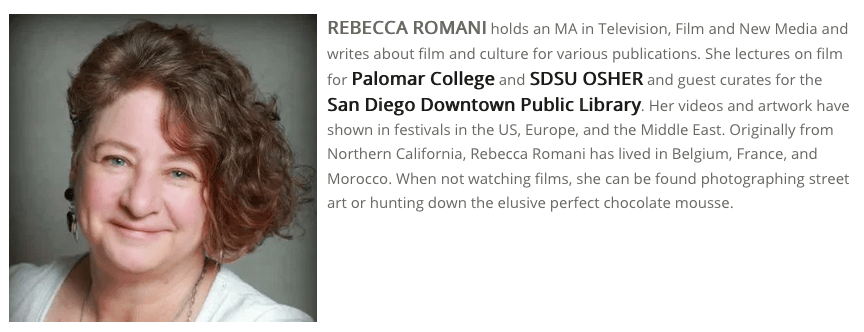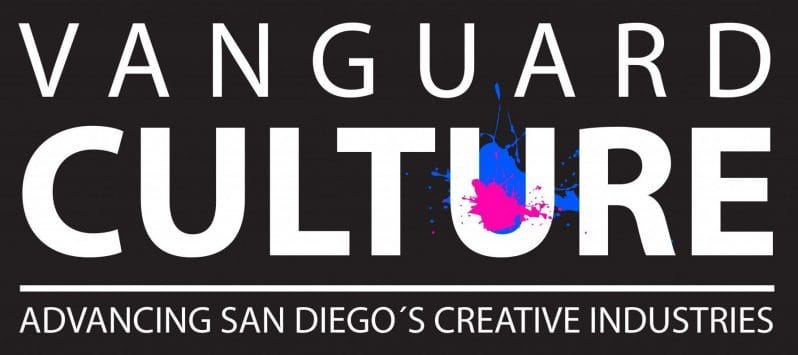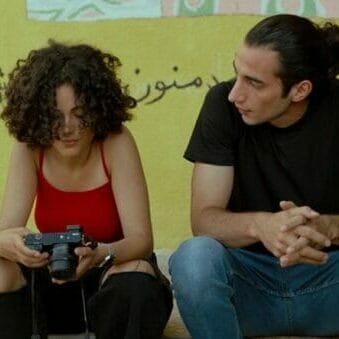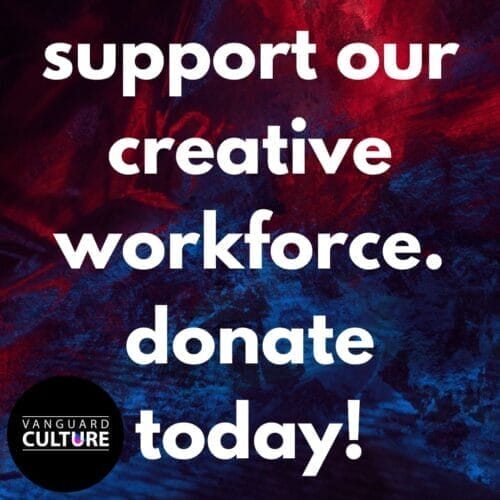By Rebecca Romani
March 2, 2023
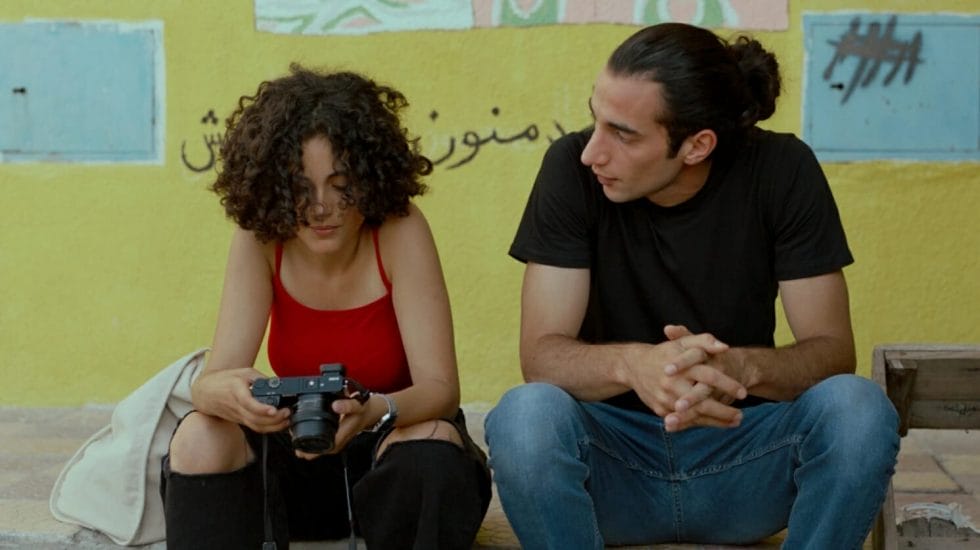
One of the newest ethnic film festivals in a significant number of such festivals in San Diego, is celebrating a milestone of sorts. The San Diego Arab Film Festival enters its 12th year, stronger and more focused after a pandemic that might have felled less organized, committed festivals.
The festival is a project of Karama- a local non-profit dedicated to increasing understanding of the issues and culture of the Arab and Islamic World.
The festival debuted in 2012 and has grown both in offerings and attendance. While the inaugural festival featured 3 feature films and various shorts, this year’s festival has programmed 8 features and 8 shorts from across the Arab world and the diaspora.
Attendance has jumped as well. While the first festival was well-attended, screenings have sold out more often than not in recent years as local Arab Americans and others interested in the culture began to learn of the festival.
The festival selection committee has been very consistent in its choice of films. Many features are their country’s submission for consideration for the Oscar for Best Foreign Film. Many of the shorts submitted have won major awards in Europe and elsewhere and the festival has screened the works of significant Arab/diaspora filmmakers such as Anne Marie Jacir (US/Palestine). Oualid Mouaness (US/Lebanon)- films that are often granted limited US distribution and can be seen only in festivals such as this one.
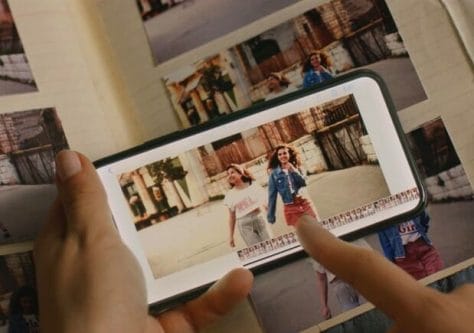
Then, too, there are works from the rising cinema industries of many countries that were disrupted by the Arab Spring. Films such as Algeria’s Oscar submission, Heliopolis, a harrowing tale of the opening salvos of the Algerian War for Independence produced by local Boualem Hassaine, and one of the finest films to come out of North Africa in years, somehow get overlooked by distributors. However, they, like Heliopolis, shine at festivals such as the San Diego Arab Film Festival.
This year’s festival promises a wide and interesting selection right out of the gate. The festival opens Friday, March 3, goes through the weekend, and concludes the following weekend.
This opening weekend, look for some extraordinary films completed and released under very difficult circumstances during the pandemic, and, in some cases, in conditions of continuing civil war.
Friday’s opening film, Alam, promises to sell out. The first film by Palestinian-Israeli director, Firas Khoury, Alam is a rare coming of age film about a young high school-aged Palestinian boy, Tameer, who learns that love of country and love of someone are not always mutually exclusive.
Lensed by Tunisian cinematographer, Frida Marzouk, the film has been praised for the beauty of the cinematography and for the excellence of the cast, many of whom are from the famous Palestinian acting family, the Bakris, who seem to almost single-handedly carry the Palestinian film industry. Festival goers may remember them from past festival selections such as Annemarie Jacir’s Wajib, about a father and son duo who must deliver their sister’s wedding invitations to all their neighbors.
Alam is paired with Ashes (Cendres) from Tunisia. Directed by US-trained Tunisian director,
Mehdi Ajroudi. Ajroudi’s film is, not surprisingly, right on time as much of North Africa is looking back at its fight for independence from the French. In Ashes, Ajroudi looks at the journey of a French soldier who travels to Tunisia seeking absolution for the crimes he committed during the war for independence. Will he find forgiveness in the desert sands, or will he have to live with the shame and the blood on his hands?
Saturday, March 4, brings films from two countries whose film industries are facing daunting circumstances. Sudan does not immediately come to mind when one thinks of cinema production. Yet, almost immediately after independence from Britain in 1956, Sudanese filmmakers embraced filmmaking, turning out documentaries and shorts. The Sudanese public embraced their work as well, but a conservative coup in 1989, effectively shut down much of Sudan’s film industry.
The installation of a provisional government together with access to digital filmmaking re-opened the path to more cinema production both within Sudan and among diasporic Sudanese filmmakers. Less restrictive practices domestically have allowed for public screenings.
Saturday’s film The Dam, is, in part, a product of the current more open environment. Director Ali Cherri, a Lebanese visual artist and filmmaker, shot his film in Sudan during the revolution, in keeping with his interest in documenting the environment and heritage of Middle Eastern countries.
In The Dam, his first feature, Cherri looks at a bricklayer, Maher, who is constructing a mysterious building project near the hydroelectric Merowe dam on the Nile. Cherri’s film becomes an allegory looking at how man and “progress” can displace people and traditional culture hundreds of years older than the new dam.
Syria has produced some beautiful films over several decades, but recently the current government war against the civilian population has weighed heavily on Syrian filmmakers. The Syrian filmmaker and musician Houssam Hamo, creates an allegory about creativity and suppressed ambition in Syria in Hibernate, the story of a young boy who dreams of playing the accordion and thinks he has finally found a way to learn.
Saturday’s second program includes the amazing feature, Memory Box, from Lebanon. Directed by Lebanese artists and filmmakers, Joana Hadjithomas and Khalil Joreige, the film features intriguing experimental techniques that call into question the role memory and trauma play in recalling lived events such as the Lebanese Civil War. The film mixes the story of Maia who lives in Montreal with her daughter, with the filmmakers’ memories of the war that arrive in Maia’s mail in a mysterious envelope.
Saturday’s short is the Moroccan film, Bouchaib. Directed by Moroccan writer and filmmaker, Ali Boudra, Bouchaib reaches back into Morocco’s colonial past to when French schools sought to break the link between traditional education and Moroccan identity and to reconstruct a new colonial citizenship under French rule. A young Moroccan boy, Bouchaib, shifts from a traditional Koranic school to the colonial school where he experiences alienation and where his identity, including his name, is contested.
How to festival– parking is probably best in the lots behind the Museum of Photographic Arts. You can buy tickets the day of; however, many films, especially those from Palestine, sell out earlier. Consider buying online to assure a seat.
In addition, come hungry if you can! Arabic food is usually available to purchase between screenings. In addition, later in the festival there will be a silent auction to raise funds for the festival. Many of the items are beautifully traditional embroidered pieces or are other cultural items.
The San Diego Arab Film Festival continues the following weekend with unusual features from Iraq, North Africa, and Syria as well as shorts from a variety of countries.

